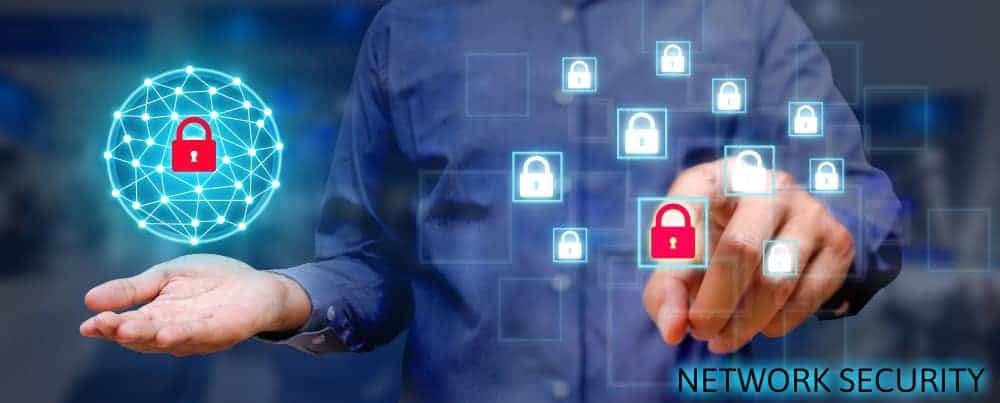
While some companies are becoming more and more open to the idea of remote employees, a lot of corporate companies still have reservations. When a company opens up to the idea of remote employees, a few things happen. People who are efficient in-house workers become interested in moving their work to a home office. And corporate starts to worry about data breaches on their remote employees’ computers. A study done by the popular company Shred-It showed that over 85% of C-Level executives thought that the risk of getting company data breached was more prevalent when employees were stationed at home. And these executives aren’t worried without cause. Data breaches affected an entire third of remote workers in the United Kingdom over the last year which has put companies at risk left and right.
However, data breaches should not deter all companies from allowing workers to work remotely. The benefits of remote employees far outweigh the downfalls. When a company chooses to allow employees to work from home they not only open up brick and mortar space but also widen their search area when looking for qualified employees to hire. And there are ways to practice safe cybersecurity and prevent data breaches from affecting remote employees. This is what we’re talking about on our blog today, so follow along to learn more about the best safe cybersecurity practices for remote employees.
When it comes down to it, once an employee is working remotely there isn’t much the company can do to protect their devices and data from being hacked. However, there are plenty of safe cybersecurity practices that employees can apply to their work routine to keep themselves, their equipment, and the company’s data secure.
One of the main reasons that data breaches occur is because an employee loses their device that holds their work-related information. Across airports in the United States, a laptop is stolen every minute and the majority of those stolen objects are never reunited with their owners. As a remote employee, it is crucial to understand that hackers, and other cybercriminals, are keeping an eye out for the opportune moment to knick a laptop or tablet in hopes it has sensitive information on it. Therefore it is critical to keep track and have control over all your devices when in public. There are multiple ways to do this including:
It can be tempting to take advantage of free WiFi in cafes, restaurants, book stores, and the like; however, it is not always a safe option. Public computers and WiFi connections are easily hackable and, if cracked, hackers can gain access to all files and stored credentials you accessed while on the computer. It is better to avoid public computers and password-free WiFi connections altogether, but if you absolutely must use it then be sure to remember the following:
If you’re in a position that requires you to send sensitive information through email then email encryption is a must. 90% of email is sent as plain text which is not secure in any way and susceptible to spies and hackers. However, with email encryption, any information sent over email is scrambled. This way it is only able to be read when the recipient receives the email and decrypts it.
If you’re working from home and it’s been approved by your employer, they should be able to install email encryption software onto your remote work technology. It will ensure that your computer, tablet, and phone are more secure and their information is safe.
It’s not uncommon for remote employees to use USB drives. Whether they are needing something from the office or need to send something to the office, USB drives help. However, USB drives from unknown sources can contain malicious software. It’s important to remember to never insert an unverified USB into your remote work computer. This even includes USB drives that you may pick up at work-related events. Risking a security breach is not worth waiting to verify the USB or get the files another way (Dropbox, Google Drive, etc.)
If you want to go further into safe cybersecurity practices, it’s also important to not let other users plug their USB drives into your computer. There is no way to know what is on their USB drives. They may or may not be aware of a malicious file. Even if you know the person, do not allow it.
If you fear that the device you use for work has been compromised, notify your company’s IT team immediately. It is so important to be aware of what a breach looks like:
While the company’s IT team may not be able to save your computer, they need to know that data has been breached. This way they can take the necessary steps to further protect the company’s data and servers. It is best practice to tell your IT team everything you can about the breach. Try to remember when exactly it could have occurred, how, and why.
There are a lot of benefits to companies having remote workers. However, concerns of a cybersecurity breach can deter executives from taking the leap. By being aware of ways to prevent cybersecurity breaches through common practices, workers can further prove remote work is safe.
At Number8, we have offices in Louisville, Kentucky and Costa Rica where we employee remote workers. With the proper training, awareness, and precautions, we are able to employ remote workers without any trouble. To learn more about what we do at Number8, visit our About page. If you’re interested in learning more about Number8 and how we can help your business, Contact Us today.
Provide your information to talk with a number8 Account Executive about your development needs today and feel what it’s like to be listened to before being sold a solution.
Let us help you add highly skilled, versatile developers to your team.